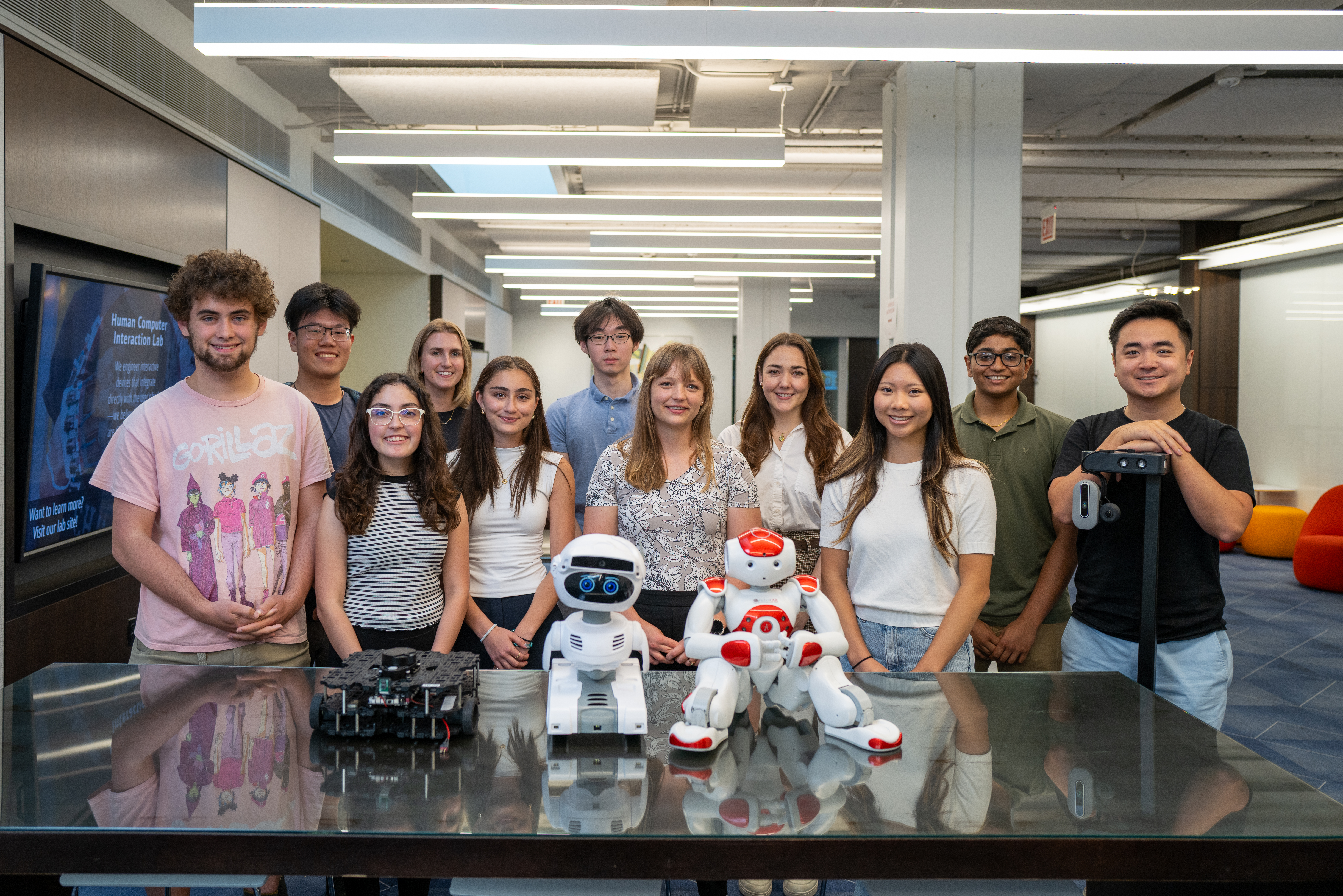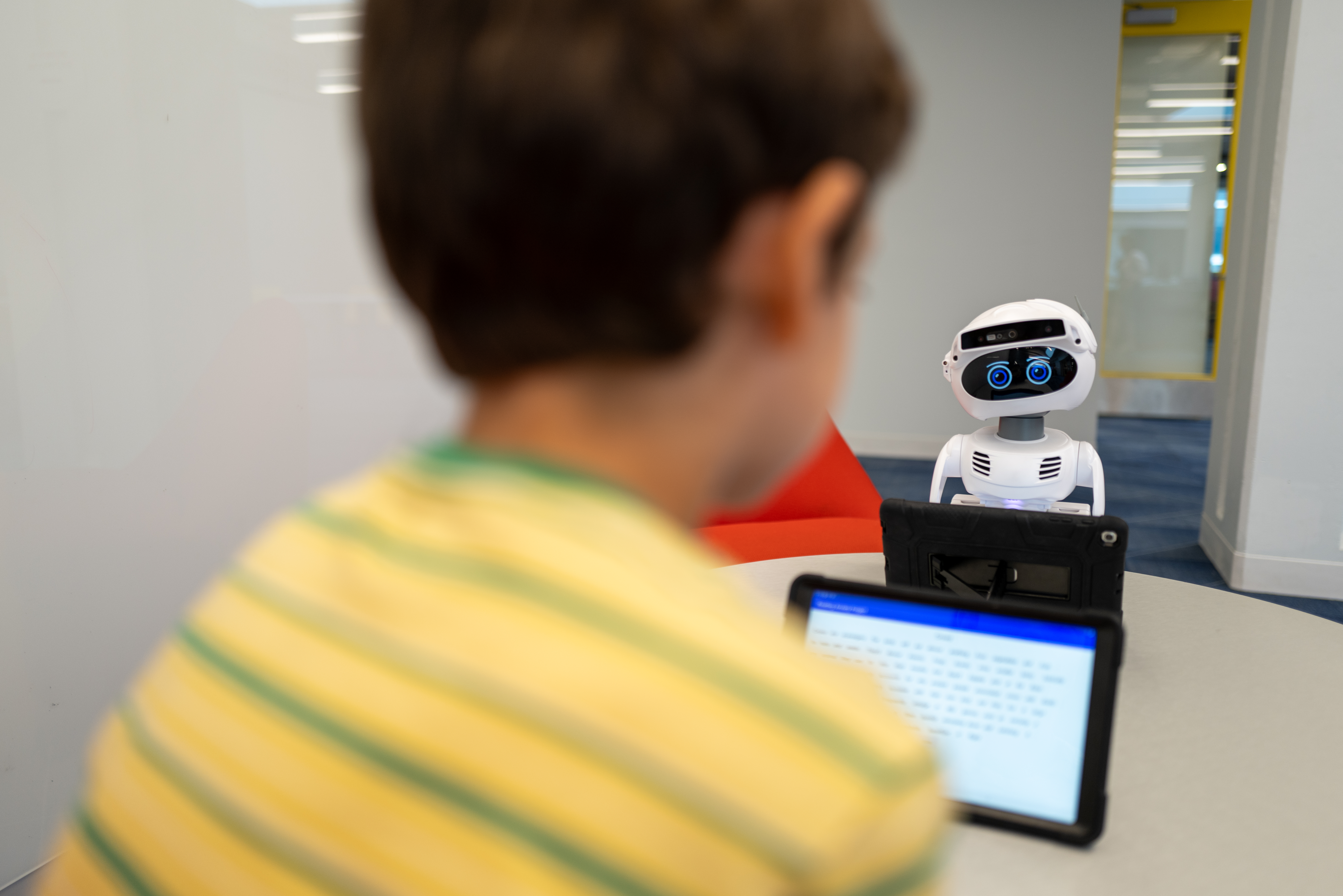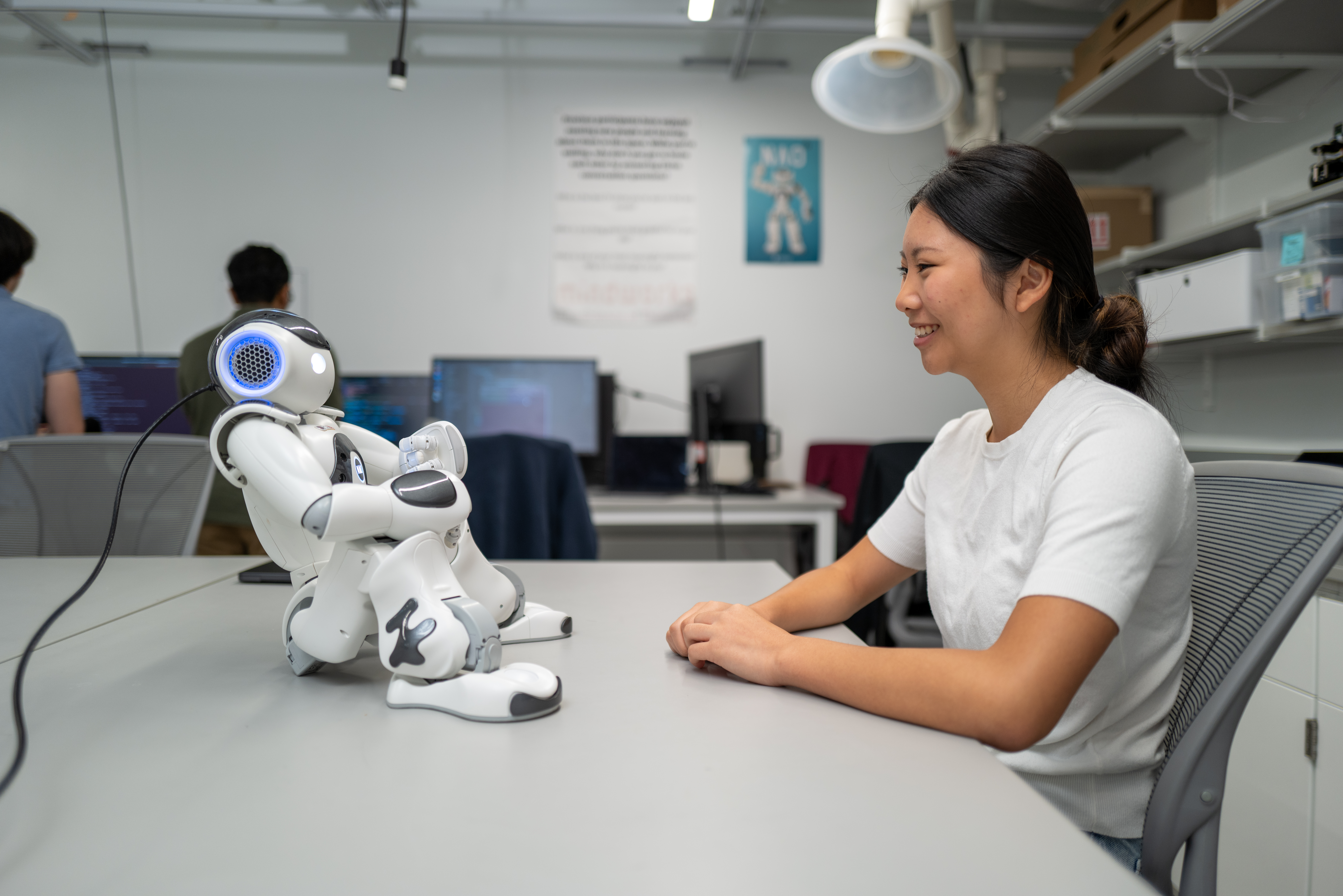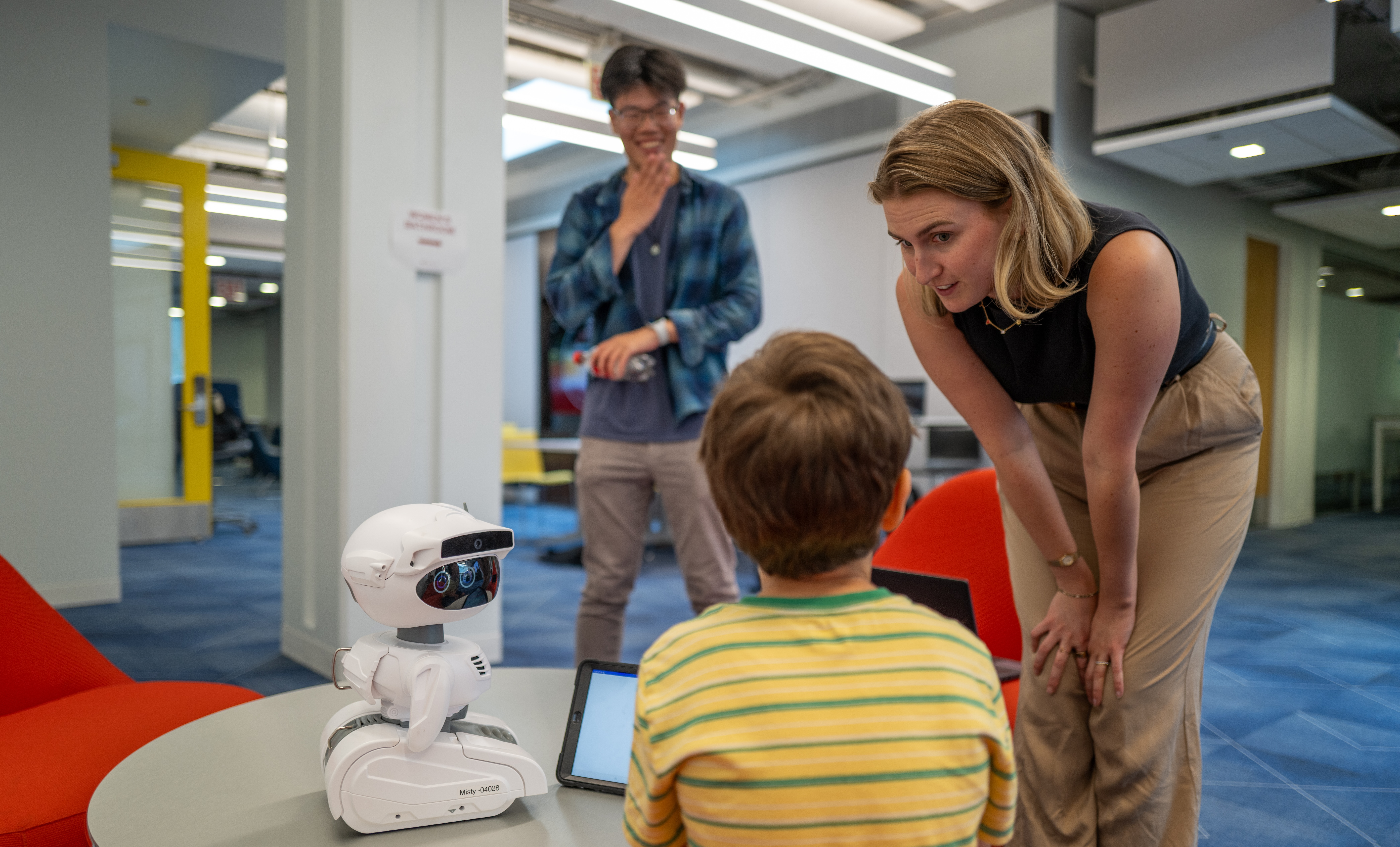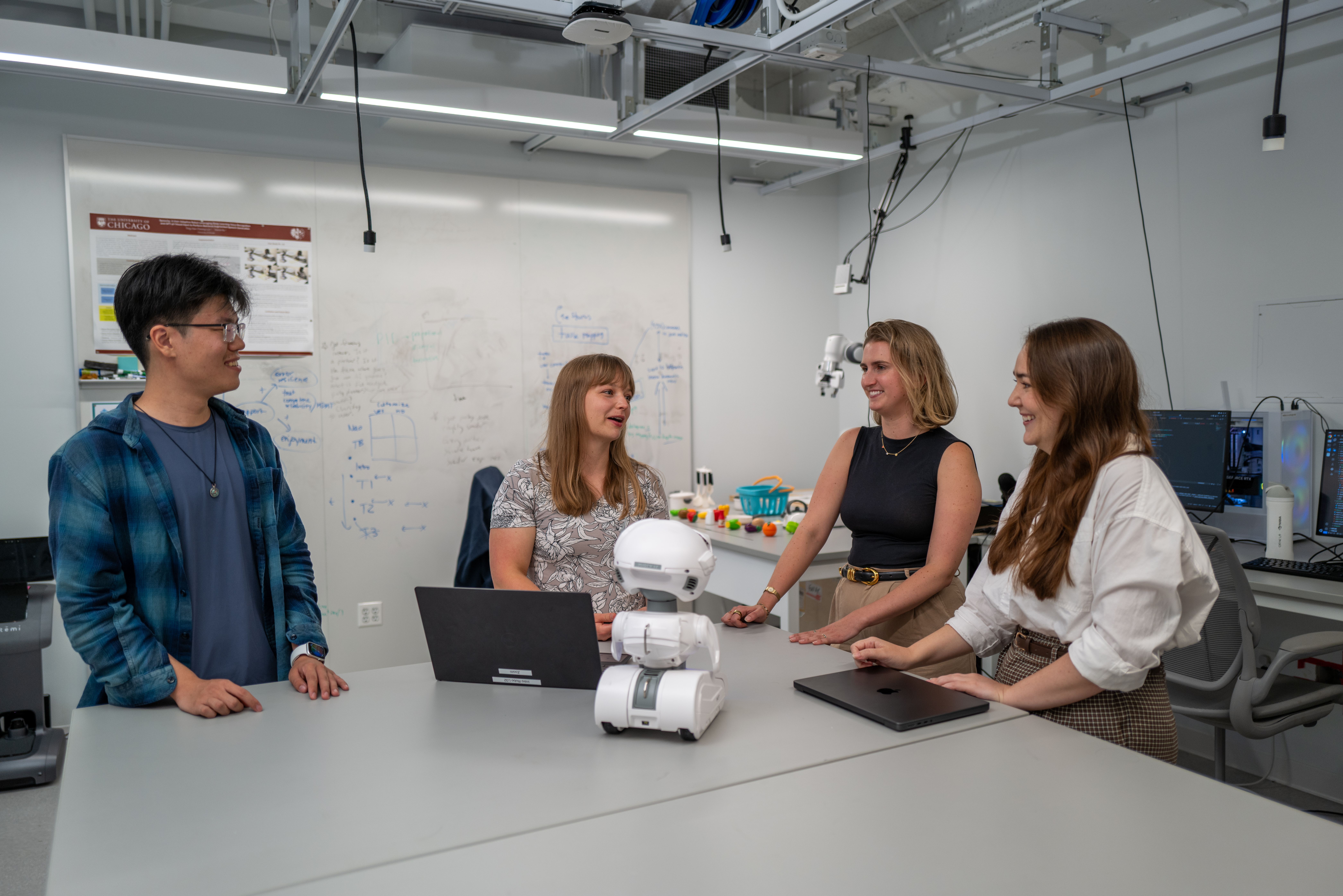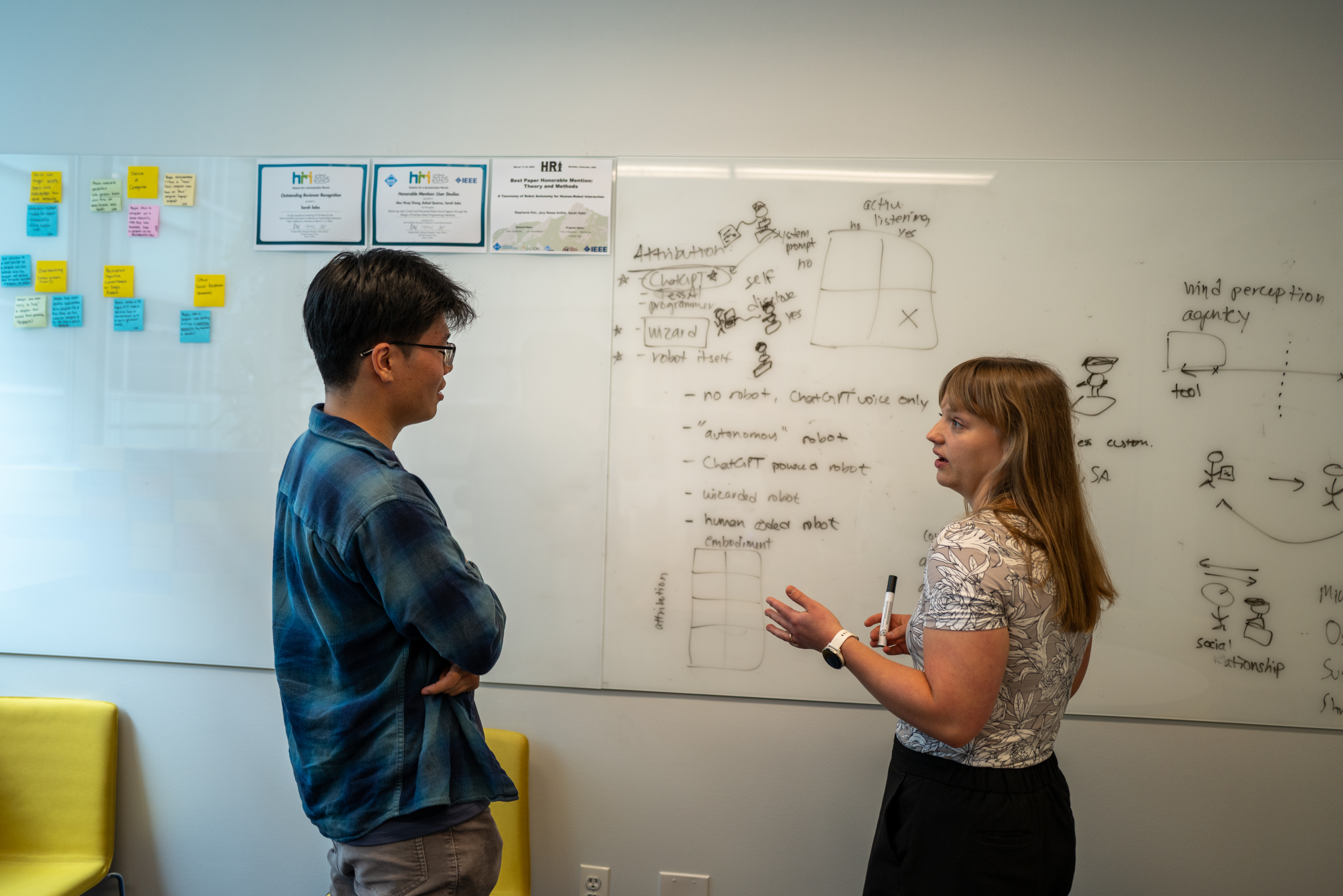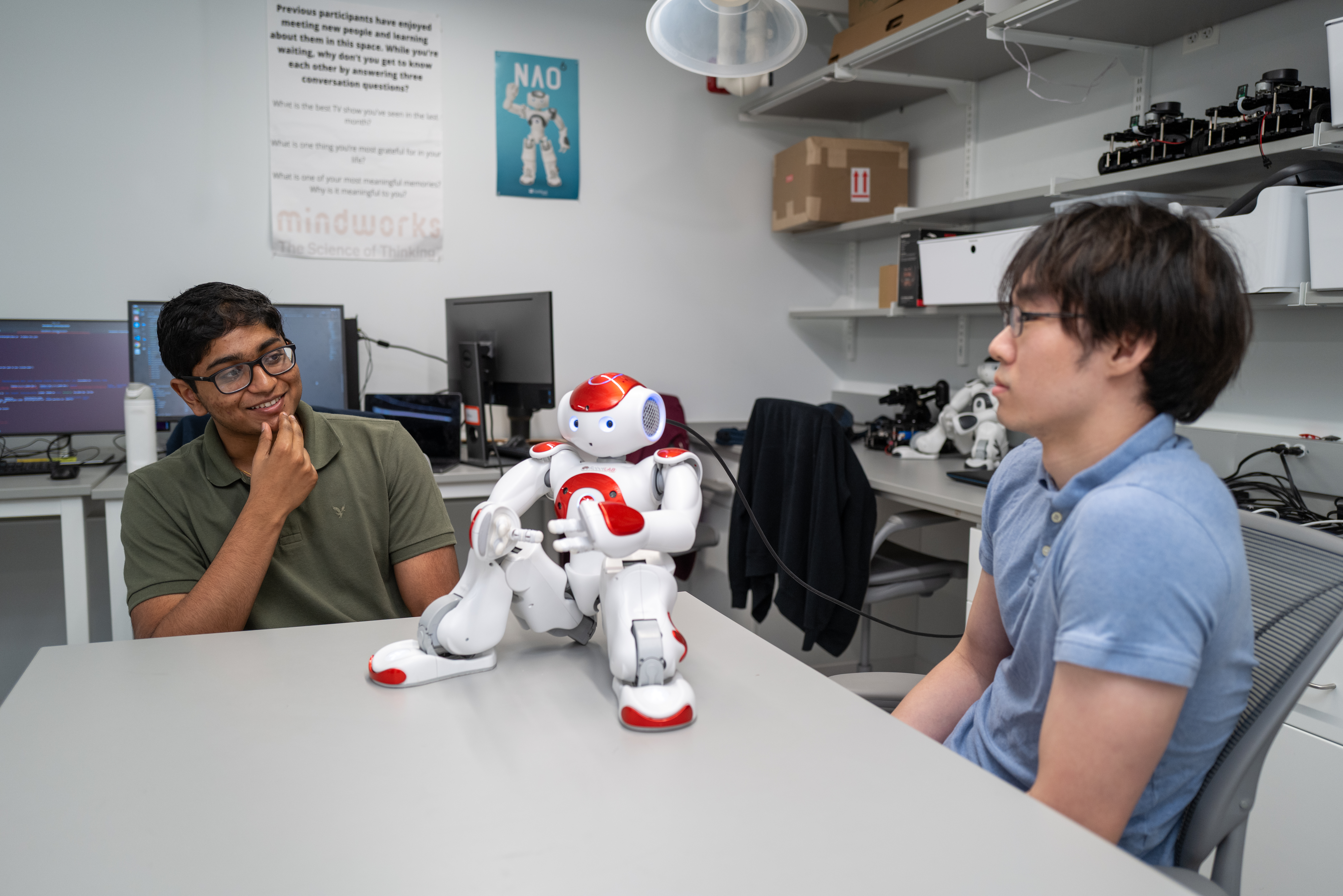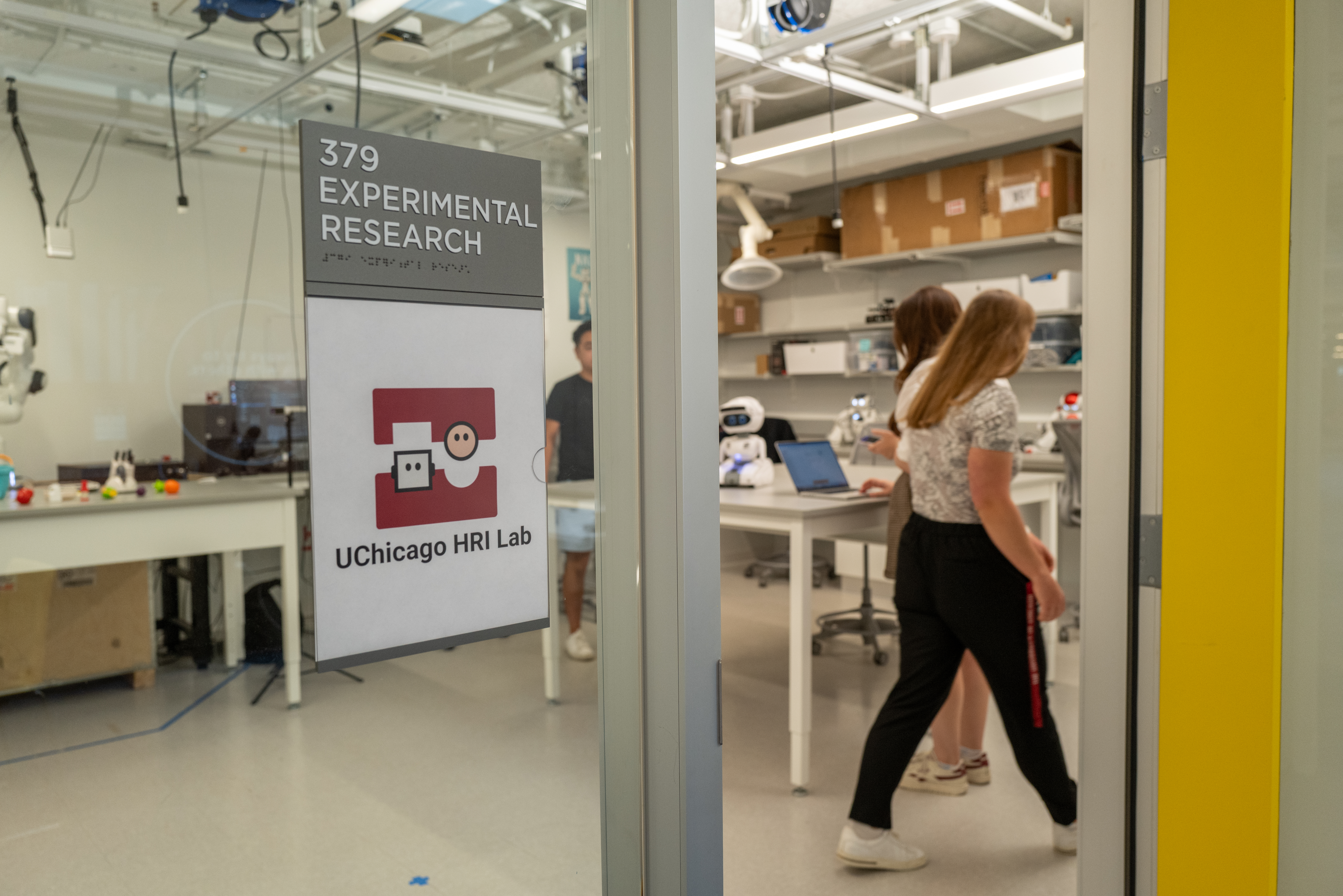Recent News
Our group has three papers accepted to the ACM/IEEE International Conference on Human Robot Interaction (HRI 2026) on the topics of children helping robots, fictional vs. factual robot tutors, and customizing robot personality. We will present our work at the conference in Edinburgh, Scotland March 16-19, 2026.
The work of our lab has recently been featured on UChicago's Inside the Lab series! Check out the video and the corresponding news article to learn more about our lab's mission and research areas, as well as some of the exciting projects we are working on.
Work in our lab led by Ph.D. student Timmy Lin explores the influence of a robot's positive or negative feedback on the interpersonal connections between people in shared decision-making tasks and is now published in Computers in Human Behavior. Check out the paper here!.
A new paper published in our lab led by Ph.D. Lauren Wright demonstrates that children experience less anxiety when reading aloud to a robot as opposed to a human adult. This work highlights a unique advantage that robots can have in educational settings, creating safe spaces for children to make mistakes while learning without fearing judgment. This work is featured in UChicago News and UChicago CS News.
Location
HRI Lab Location
John Crerar Library Room 379
5730 S Ellis Ave
Chicago, IL 60637
